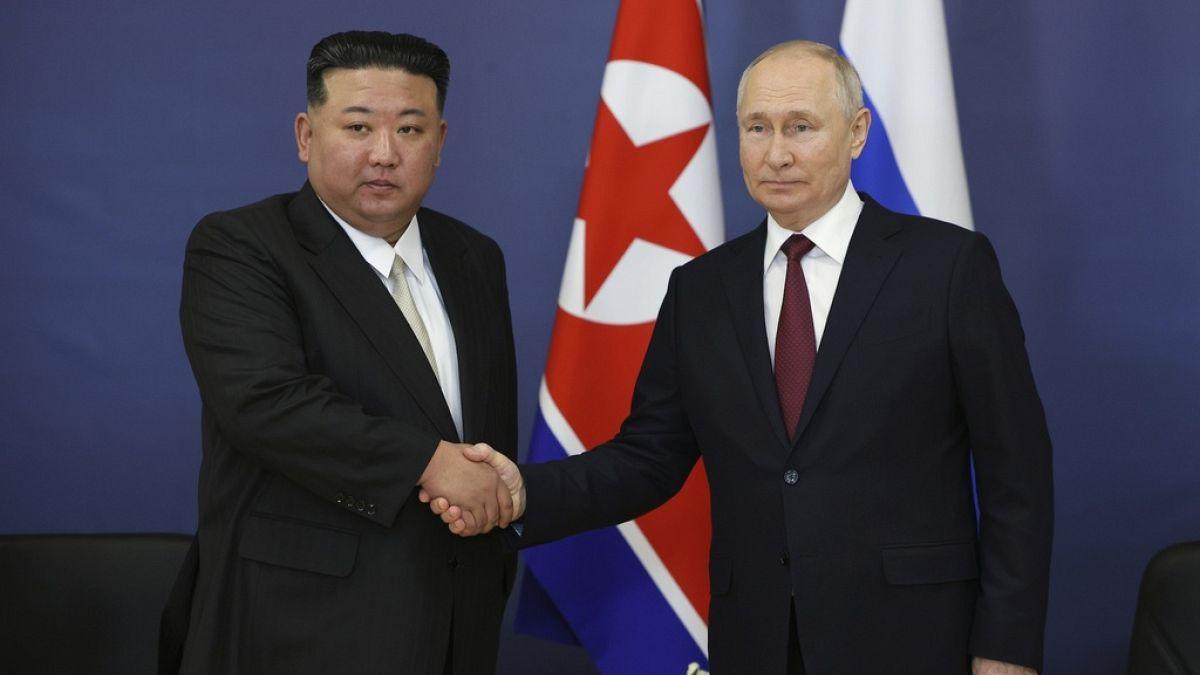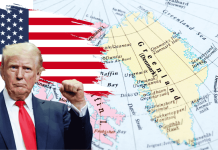Triggered by the recently signed defense agreement between North Korea and Russia, South Korea may reconsider the possibility of sending arms to Ukraine.
On June 20, South Korea announced that it would examine the prospect of arming Ukraine, according to a Yonhap news report that cited an unknown official. This came after the leaders of North Korea and Russia agreed to defend each other in the case of conflict.
Although unverified in the absence of an official announcement by the South Korean government, the reports come after Seoul denounced the comprehensive strategic partnership deal that was inked this week by the leaders of North Korea and Russia. In an official statement on June 20, South Korea claimed that the partnership deal violated UN sanctions.
The South Korean presidential office said, “The government clearly emphasizes that any cooperation that directly or indirectly helps North Korea increase its military power is a violation of UN Security Council resolutions and is subject to monitoring and sanctions by the international community.”
The reports come days after Russian President Vladimir Putin lauded South Korea for not directly providing arms to Ukraine, a move that was seen as an attempt by the Russian President to extend an olive branch to Seoul, which has been disenchanted with Moscow in the wake of its growing military and diplomatic cooperation with Pyongyang.
“Just like in our relations with Italy, we do not see any Russophobic stance when working with the South Korean government. Neither are there any weapons supplied to the conflict zone. We highly appreciate that,” Putin was quoted as saying by Yonhap News Agency.
On its part, South Korea has been reluctant to send arms to Ukraine directly due to its long-held policy of not arming states that are involved in an active conflict. Seoul remains steadfast in refusing to send lethal weapons to Kyiv despite mounting pressure from NATO allies.
While reports have noted that Seoul indirectly supplied 155mm artillery shells to Ukraine via the United States, no direct shipments have been made so far. The two Koreas have allegedly been sending munitions to opposite sides in what has been labeled as a proxy war with each other.
Chris Park, a research assistant and the program coordinator for the Arleigh A. Burke Chair in Strategy at the Center for Strategic and International Studies, said last month: “With South Korea providing artillery shells to Ukraine via the United States and North Korea directly sending weapons to Russia, you get a situation where the two Koreas are engaged in what’s essentially a proxy war 5,000 miles away from the peninsula.
🇰🇷🇺🇲🇺🇦 Ukraine receives South Korean 155mm ammo
McAlester Army Ammunition Plant, Oklahoma, has been refurbishing South Korean 155mm shells with new markings and fuses, which are then sent to Ukraine.
It was previously alleged in leaked documents, that beyond South Korea… pic.twitter.com/pCMXCPvOxc
— Colby Badhwar 🇨🇦🇬🇧 (@ColbyBadhwar) March 14, 2024
However, both Koreas have remained silent about their armed support to the two combatants of the ongoing Ukraine war. Reports about South Korea reconsidering its stance come after the defense cooperation agreements — the most significant and strategic since the Cold War era — signed between North Korea and Russia,
The agreements have particularly angered Seoul, as they have occurred amid escalating tensions with its northern neighbor, its enemy. Pyongyang has raised the stakes by launching hundreds of balloons filled with waste toward South Korea. Further, a few North Korean soldiers also crossed the border, prompting South Korea to fire warning shots.
The South Korean administration, which has resisted all pressure to take a side in the current conflict, seems to have been shaken by the growing tensions with North Korea and its expanding cooperation with Russia. There have been concerns that, in turn, for its military backing, Pyongyang could receive Moscow’s support for its expanding missile program, which is considered a threat by Seoul.
Russia-North Korea Arms Agreement
Presidents Vladimir Putin of Russia and Kim Jong Un of North Korea inked a strategic agreement on Wednesday that guarantees assistance to each other in the event of “aggression”.
In 1961, North Korea and the former Soviet Union signed a deal that, according to experts, required Moscow to intervene militarily if the North was attacked. When the USSR fell apart, the agreement was abandoned and replaced in 2000 with a new one that provided fewer guarantees of security.
It is not clear if the newly signed agreement provides the same level of protection as the Cold War era. However, experts have been quick to note that it is certainly the closest the two sides have come to officially declaring friendship and support since the collapse of the USSR.
The text says that if one of the nations is attacked and forced into a state of war, the other must immediately use “all means at its disposal” to offer “military and other assistance”.

However, it also states that such acts have to be compliant with both national laws and Article 51 of the United Nations Charter, which upholds the right to self-defense of a member state of the organization.
The Russian President referred to its military cooperation with North Korea in response to the West’s supply of arms, high-precision weaponry systems, jets, and other cutting-edge weaponry to Ukraine.
State media in North Korea stated that the deal obliged the parties to enhance their cooperative defense capabilities. However, it did not say what those measures would be or if they would involve joint military training.
Although the deal’s specifics are scant, it might represent the closest relationship between Moscow and Pyongyang since the end of the Cold War. Both leaders characterized it as a significant improvement in their relationship in terms of security, trade, investment, cultural linkages, and humanitarianism.
Kim stated that the two nations had a “fiery friendship” and that the agreement was their “strongest ever treaty,” elevating the relationship to the status of an alliance. He also categorically stated that his country would fully back Russia’s offensive in Ukraine.
Putin referred to it as a “breakthrough document”, indicating a common goal to elevate relations.
- Contact the author at sakshi.tiwari9555 (at) gmail.com
- Follow EurAsian Times on Google News




